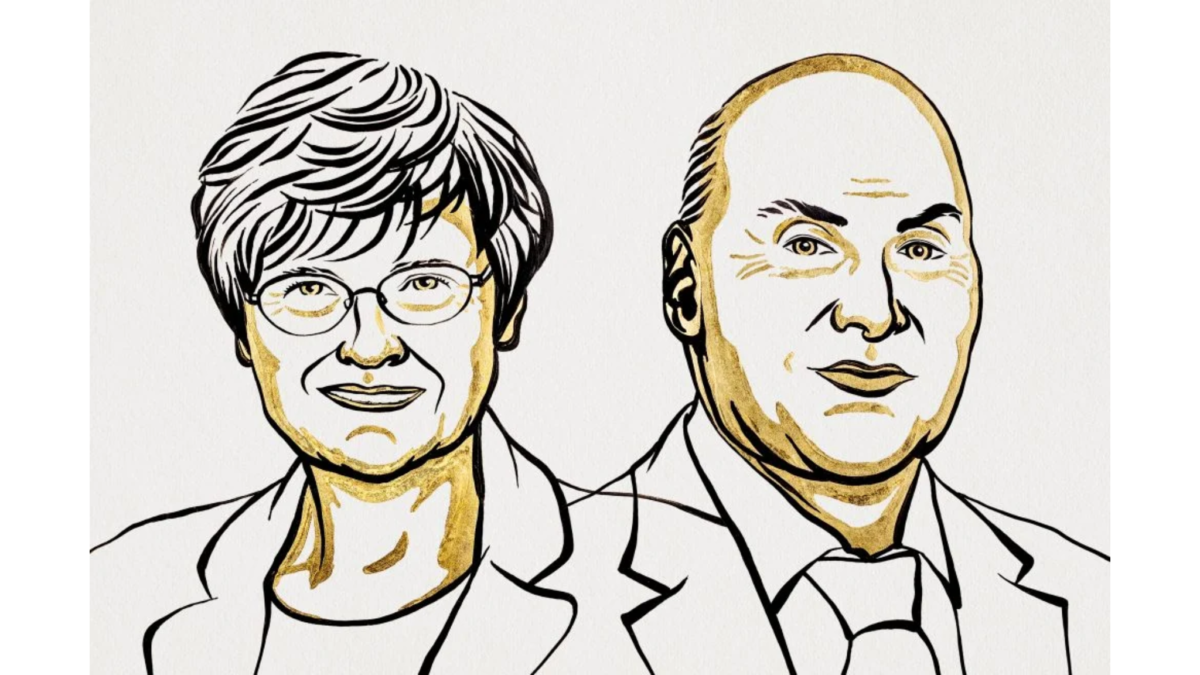
Image Credit: Ill. Niklas Elmehed © Nobel Prize Outreach
The Nobel Prize winners for 2023 in Physiology and Medicine are biochemist Katalin Karikó and immunologist Drew Weissman “for their discoveries concerning nucleoside base modifications that enabled the development of effective mRNA vaccines against COVID-19.”
The technology was being experimented on even before the pandemic, without the scientists knowing truly how important the technology would turn out to be in saving lives now that millions of people around the world have been vaccinated thanks to it and have possibly been protected from serious implications that a COVID-19 infection could otherwise cause.
Karikó is also proud to be the 13th female scientist to win a Nobel Prize in the medicine/physiology category. Born in Hungary, she immigrated to the United States in the 1980s. She said “Hopefully, this prize will inspire women and immigrants and all of the young ones to persevere and be resilient. That’s what I hope.”
How Vaccine Technology Works
Viruses have historically been notoriously difficult to make vaccines for, as they constantly mutate and change in the host body, making traditional vaccine technology ineffective against them. Karikó, who is at Szeged University in Hungary, and Weissman, at the University of Pennsylvania in Philadelphia (UPenn), paved the way for the development of vaccines by finding a way to deliver genetic material called messenger RNA – usually referred to as mRNA – into our cells without triggering unwanted immune response.
Vaccine technology works by basically taking the genetic code of the virus and turning it into a vaccine by modifying it in necessary ways. Then, this vaccine is injected into the patient to initiate immunization. The vaccine that enters the patient’s cells causes the cells to react and produce ‘spike proteins’ for them which are recognised by the patient’s body as foreign and initiates a response from the immunity system, which releases T-Cells to destroy cells with the coronavirus spike protein. This whole process familiarizes the host immune system with the coronavirus’ spike protein, teaching it to defend itself against future infection.
Reason for Nobel Prize – Impact of mRNA Research
The vaccines developed due to this breakthrough have been administered more than 13 billion times, saved millions of lives and prevented millions of cases of severe COVID-19, said the Nobel Prize committee. This same mRNA technology has now paved the way for further research, in order to vaccinate or cure other diseases, including cancer.
The big reason the mRNA technology has been praised as being so crucial in developing the Covid-19 vaccinesis that this method allows for rapid development of a vaccine against almost anything – as long as the necessary genetic code is known. This makes it a much faster and more flexible method than traditional vaccine development. This allowed us to make covid vaccines quickly to save millions of lives during one of the largest threats to humanities of our times.
There are even experimental approaches using the technology that are teaching patients’ bodies how to fight their own cancers, where scientists analyze a patient’s tumor, look for abnormal proteins that are only produced by tissue affected by the cancer that are not otherwise present in healthy tissue, which are used to flag these cells. They then develop a vaccine to target those flag proteins and inject the vaccine into the patient, to train the patient’s own body to fight the cancer without needing radio or chemotherapies or surgeries.



